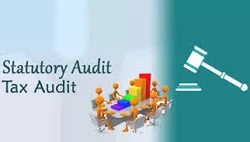Challenges Come for Editors for Statutory Audit
These challenges come for editors for statutory audit process and require careful attention to address effectively.
1. Data Accuracy and Completeness:
Editors must ensure that all financial data, documents, and supporting evidence are accurate and complete.
Any inconsistencies or missing information can lead to errors in the final audit report. Maintaining meticulous attention to detail is essential in tackling this challenge.
2. Interpretation of Complex Transactions:
Audits often involve intricate financial transactions and accounting standards. Editors need a deep understanding of these complexities to properly interpret and verify the transactions. Dealing with intricate financial instruments and non-standard contracts can pose difficulties.
3. Time Constraints:
Statutory audits are often bound by strict timelines, and editors must work within these constraints.
The pressure to meet deadlines while thoroughly reviewing financial information can be daunting. Effective time management and prioritization are vital to overcoming this challenge.
4. Regulatory Changes:
Editors need to stay updated with the latest accounting and auditing standards, as regulations can change.
Keeping track of these changes and understanding how they impact the audit process is essential for accurate reporting.
5. Coordinating with Different Teams:
The audit process involves collaboration between various teams, including auditors, accountants, and management. Editors must effectively communicate and coordinate with these teams to ensure the accurate representation of financial data.
6. Handling Voluminous Data:
Modern businesses generate a large volume of financial data. Editors need tools and techniques to handle and analyze this data efficiently, ensuring that nothing is overlooked in the audit process.
7. Identifying Fraud and Misstatements:
Editors must be vigilant in identifying potential fraud or intentional misstatements in financial records. This requires a critical mindset and the ability to spot irregularities that might indicate fraudulent activities.
8. Maintaining Independence:
Auditors, including editors, must maintain independence from the entities they are auditing. Ensuring that personal biases or conflicts of interest do not influence the audit process can be challenging.
9. Communication Challenges:
Editors often need to communicate audit findings and issues to various stakeholders, including management, board members, and regulatory authorities. Effective communication skills are essential to convey complex financial matters clearly.
10. Technical Proficiency:
Editors need to be well-versed in using audit software and tools to streamline the process and improve efficiency. Staying updated with technological advancements in the audit field can be demanding.
In conclusion, editors face challenges ranging from technical intricacies to time constraints in the context of statutory audits.
Overcoming these challenges requires a combination of expertise, attention to detail, effective communication, and the ability to adapt to evolving regulatory and technological landscapes.
To visit: https://www.mca.gov.in/
For further details access our website: https://vibrantfinserv.com

